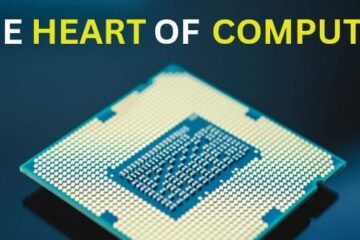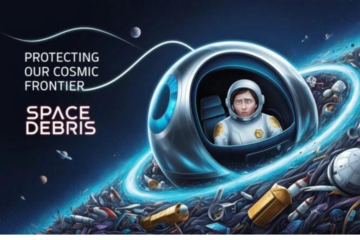Greetings! Can you consider what role such an artificial intelligence will play in the development of the world up to 2025? Based on available categorizations, AI is among the growing occupations; much more is anticipated to occur with AI within the one to five years.
Artificial Intelligence is changing industries, improving on elementary human tasks or existence.
Artificial intelligence coexists in almost every sector most closely affecting such areas as medicine, education, advertisement, and transportation.
This article will explore what AI is going to be in 2025 and how this new horizon will transform the world. If you want to find out more about how far it has advanced already, and what it has for us in the future,
Do continue reading!
AI in Healthcare: Revolutionizing Medicine

The analysis of the numerous fields that will see the rise of AI in 2025 shows that one of the most important fields will be healthcare.
AI technologies are now deemed necessary for diagnostics, treatment, and even prevention of diseases, bringing added value to patients and medical practices alike.
Personalized Medicine
AI is bringing about a better targeted approach to the delivery of healthcare because when a doctor treats someone, he or she can consider that individual’s genes, habits, and conditions.
There is still an enormous opportunity for the development of artificial intelligence because a report by McKinsey estimates that the market for AI in healthcare will be $45 billion by 2025.
AI-Driven Diagnostics
- Most new approaches can analyze enormous amounts of medical data and give accurate diagnoses quicker than old approaches. Early diagnosis and treatment of various disorders, including canker, cancer, cardiovascular diseases, and neurological ailments.
Telemedicine & Remote
Telemedicine is impossible without artificial intelligence, since patients are delivered consultations and are under remote monitoring in real mode.
Modern and wearable technologies powered by artificial intelligence collect information in patients, which can help prevent or address their diseases.
This is especially so in the rural districts most of whom probably do not have any chance of accessing these health facilities.
With these, people across the world shall be in a position to gain better medical treatment that are more available and cheaper due to the application of Artificial intelligence.
Autonomous and the future of transport
Self-driving cars are already in the market and are expected to revolutionize transport by 2025. Today, revolutionists, including Tesla, WeMo, Uber, and others, are developing self-driving cars. Self-driving cars will change how people move.
Self-Driving Cars
Information about the market suggests that fully automated cars will reach the market by the year 2025. Once more, automation reduces the occurrence of several incidents since there will rarely be a need for human interaction.
Unfortunately, Statista said that the global market in autonomous vehicles will be $60 billion this year. This change reduces traffic accidents, congestion, and carbon emissions beyond comprehension.
AI in Logistics and Delivery
Smart delivery drones and robots are still in trial stages at companies, including Ama470 Zasdsndon. These systems will feature prominently in getting the goods to the market because they promise better and cheaper means.
Industrial Automation
- They are replacing more human illustrations with Artificial intelligence-based robots to increase precision, reduce cost, and increase production potential.
- Some of the implementations have included things like three-dimensional printing and robots in the manufacturing process.
With the advent of autonomous systems, industries will again experience a dramatic paradigm shift in how products are moved, services are provided, and people are transported from one point to another.
The following video explain about Autonomous and the future of transport:
AI in Education: Per-Learner Learning
This brings us to the education sector, among the most likely fields to benefit from AI in 2025. As on
‘e of the most transformative movements of the XXI Century, AI will bring learning closer to people, making it more effective and engaging.
Personalized Learning
Thanks to AI, social learning platforms such as Coursera and Duolingo reorganize content depending on the student’s study speed and manner. Predictive analytics also helps AI find knowledge shortages and develop individual learning schedules.
Virtual Tutors
Smart tutors and discussants will be regular assistants in the classrooms, readily answering questions and helping with homework sets and assignments. These AI tutors will also offer immediate feedback, benefiting students, teachers, and anyone else who needs them.
Administrative Tasks
This means that an AI system can perform routine class work, including grading students’ work, assessment, and scheduling.
AI in Skill Prediction
AI also makes it possible to estimate what skills students will require in the future workforce. This allows the institution to align itself with the programs so that the students acquire the most needed skills.
E tech applications powered by intelligent teaching technologies argue for a future of education in which every learner will have access to perfect training to meet the needs of the future job market.
Imagination and Information Production
Generative AI is a relatively new concept that will revolutionize creative industries by 2025. Artificial intelligence is already applied to produce music, paintings, videos, and other forms of production.
Content Creation and Automation
Generative AI can generate quality text, blog articles, marketing content, and even books, for instance, Open AI’s GPT-3. These AI tools above can help in writing content, which means they can write more content for the business in a shorter span of time, all considered with optimal quality.
Design and Visual Art
It is also becoming apparent in visual arts. AI is being applied to making paintings, sculptures, and shapes of art, as well as digital pieces of art. GANs can be used by AI systems to produce images that would have otherwise required human artists to produce.
Synthetic Media and Deep fakes
Automatic video creation and voice-over services will soon transform the entertainment world.
While there are appeals to damaging misinformation, these technologies are valuable creative tools, most likely used in filmmaking, gaming, and digital marketing.
AI will be integrated into the very essence of the majority of creative industries by 2025. The goal is simple: to ease the conception of new ways of art and entertainment.
Ethical AI

With the growing interweaving of AI into society, the problems of ethics of its usage are emerging.
Bias and Fairness
One major issue related to AI is bias in algorithms. AI algorithms are trained on data, and when the data set is prejudiced, AI systems will also be prejudiced. It is also expected that in 2025, most endeavors will be directed at improving the capability of AI systems to embrace fairness and equality.
Transparency and Accountability
Expected and emerging demands thus include the following: Governments and organizations are predicted to set rules to ensure that firms are responsible for all the choices made by AI systems.
Privacy and Data Protection
Since most AI applications will work with massive volumes of personal information, privacy and data protection are bound to become issues. It is believed that the latter will be more strictly regulated in 2025 for the ethical utilization of artificial intelligence.
Due to the potentiality of the term ‘AI,’ the topic has large ethically bounded dimensions, and hence, definite norms and standards need to be set for AI to act only for the welfare of the people and not as its harm.
Conclusion
Here will be the major Artificial Intelligence trends in the next few years as we approach 2025.
Healthcare, education, transportation, sustainability, and other industries will be receiving innovations introduced by AI to enhance global quality.
But also important now is awareness and negotiation of the ethical issues and how we can make the enhancements of AI for the good of all human beings. They asked how advanced intelligence holds. Advanced Intelligence can alter your world in the next few years.
Therefore, there are endless prospects for AI and the aspect of, and the future is very bright.
FAQs
1. A primary question to be answered is, how the use of AI will enhance the healthcare system by 2025?
AI will drive precision medicine, diagnostics and telemedicine to new levels never thought possible.
2. To what industries will AI be most profitable by 2025?
The deployment of AI will primarily impact four areas of marked improvement: healthcare, education, transport, and sustainability.
3. What is ethical about an AI?
There are many difficulties in AI, such as fair inputs, meaningful transparency, responsibility, and data protection and safety.
4. What role is AI playing in sustainability?
AI is applied to energy management, environmental observations, and climate change control.
3. What impacts do industries face in 2025 due to AI?
The forecast is optimistic. It states that by 2025, AI will become commonplace in health care, schooling, transportation, and environmental protection, providing individualized goods and services and advancing operations.





